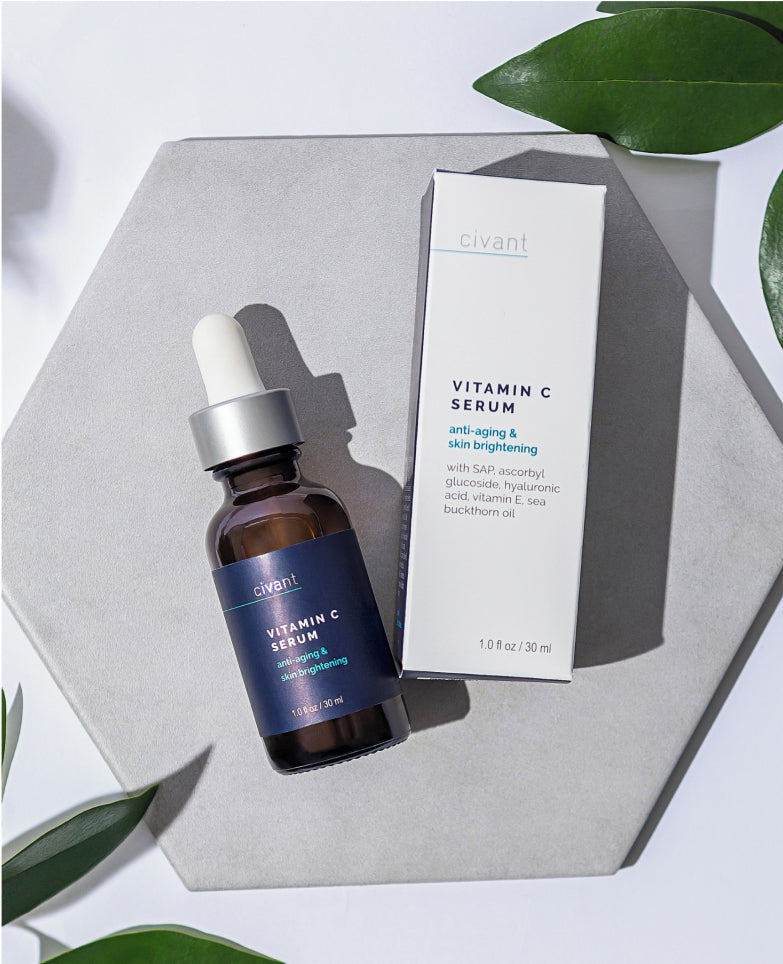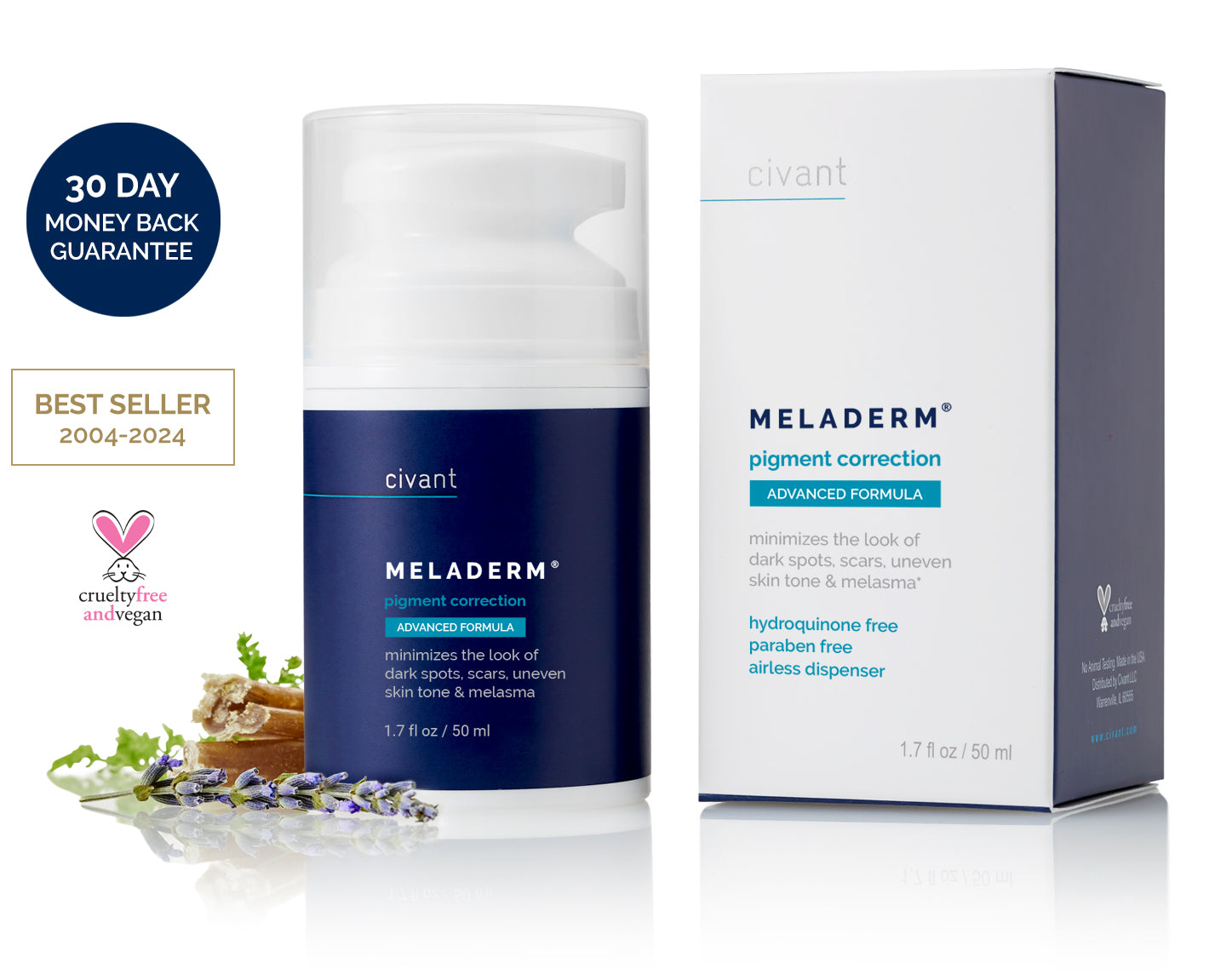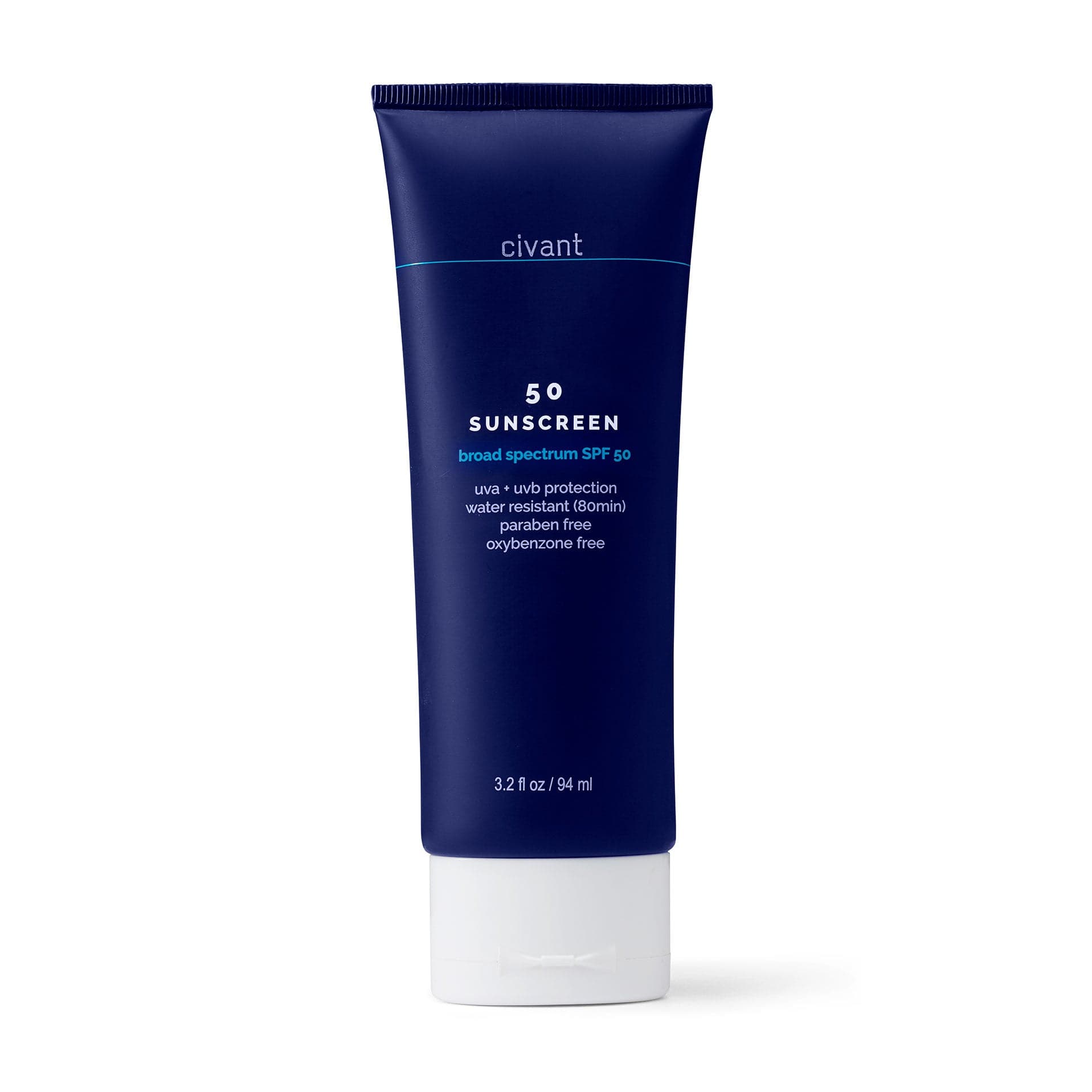Melasma is a form of hyperpigmentation that can be extremely stubborn and annoying for people who suffer from it. Not only can it be triggered by many different internal and external factors, but it can also be a pain to treat. Many people choose to treat their melasma in a variety of ways, but you should always be careful with the treatments that you use – some can actually make your melasma worse. In this article, we’ll be taking you through some of the most effective ways to treat melasma to reveal a radiant, glowing complexion.
What is melasma?
Melasma is a form of hyperpigmentation that appears as dark brown patches on your skin. It’s most common to experience melasma on your face, particularly around the cheeks, forehead, upper lip, and the bridge of your nose. Some people may also notice signs of melasma on areas of their body that are frequently exposed to the sun, like their forearms and neck. There are three different types of melasma that you may experience:
-
Epidermal melasma
Epidermal melasma affects the top layer of the skin and is characterized by brown marks with well-defined borders. -
Dermal melasma
Dermal melasma affects the deeper layers of the skin and is characterized by patches that have a blue or grey tint. -
Mixed melasma
Mixed melasma is a combination of epidermal and dermal and is characterized by patches that have a brown-grey tint.
Who is most at risk of developing melasma?
Melasma is most common in women between the ages of 20 and 40, although men can also experience it. The condition is the most prevalent in women who have darker skin tones and tan easily, but that doesn’t mean that fairer skin tones are completely excluded from developing Melasma.
What causes melasma?
Most women will notice melasma flare-ups in the summer when they are more exposed to UV light, but it’s also caused by hormonal changes – especially the change in hormones that happens when you’re pregnant. During pregnancy, endogenous hormones stimulate the production of melanin pigments and bring on melasma flare-ups. It’s thought to affect around 10-15% of women while pregnant, becoming so common that it’s called the ‘mask of pregnancy’. Melasma flare-ups can also be brought on by taking birth control pills, excessive sun exposure, stress, and thyroid disease.
Is melasma a form of skin cancer?
Any new patches on your skin can immediately cause concern however, melasma is harmless and will not develop into skin cancer – but you should be aware that the excessive sun exposure that can lead to melasma can also make you more at risk of developing skin cancer. If you notice that the patches on your skin are changing colour or shape, becoming itchy, or starting to bleed, it’s best to speak to a doctor if you’re concerned.
Can you prevent melasma?
Although some cases of melasma are caused by hormones, the easiest way to prevent melasma is by wearing a broad-spectrum mineral sunscreen with zinc or titanium every single day no matter the weather. This will not only prevent your skin from sun damage and aging but will also significantly reduce the likelihood of developing melasma caused by UV rays. You can also use a Vitamin C serum on a daily basis which will help keep the skin clear and protected from UV damage.
How do you treat melasma?
Most expert dermatologists will recommend a mixture of prescription-strength medications and in-office treatments to quickly and effectively reduce the appearance of melasma. Treating melasma can be a lot more complicated than treating standard hyperpigmentation as it’s a lot more stubborn and tricky to fade. Topical creams can also help to reduce the appearance of melasma and can be incorporated into a daily skincare routine to work in combination and extend the results you can get with dermatological treatments.
Meladerm® is an especially effective topical cream that contains 10 advanced ingredients that can brighten the appearance of your skin and reduce the signs of melasma quickly. Using a mixture of powerhouse ingredients like Alpha Arbutin, Bearberry Extract, Vitamin B3 (niacinamide), vitamin C, and licorice root extract, Meladerm® can keep your complexion clear and glowing.
Unlike some other products on the market, Meladerm® doesn’t contain hydroquinone, mercury, steroids or other undesirable bleaching substances which can often lead to undesirable consequences for your skin. Most effective topical creams that use high-quality formulas and ingredients will deliver results in as little as 2–4 weeks, then after 2–3 months, you should start noticing the full effects.
Dermatological treatments for melasma
Topical treatments can help to fade away signs of melasma. Still, you can also extend the benefits by visiting your local dermatologist who can perform a range of treatments to banish your melasma, like:
-
Chemical peels
These are treatments that use a mixture of chemicals that promote cell turnover and lightly exfoliate the skin. -
Microneedling
During this procedure, your dermatologist will use needles to create microscopic tears in your skin. Forcing the skill to heal itself, this procedure usually results in an even, clear skin tone afterwards. -
Laser and light treatments
There are a range of different treatments of this nature that use light to promote clear, healthy skin, and can reduce the appearance of melasma.
If you’d like to learn more about melasma, get in touch with us and we’d love to help you create a skincare routine that keeps your skin looking the best it can. Get in touch with Civant today.




